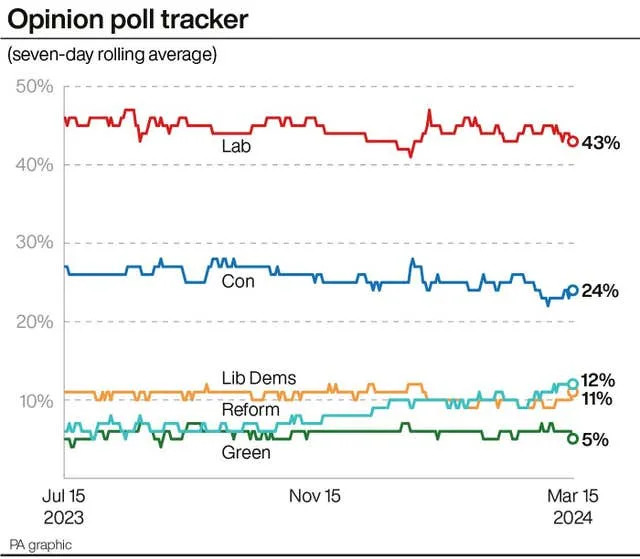AN OPEN LETTER TO PRESTON MANNING
ON THE EVE OF CANADA'S 42ND ELECTION
19, OCTOBER 2015
Dear Mr. Manning;
Sir, I am writing you to appeal to you in these last days of
this election, before voting day, to speak out about the undemocratic and downright
Un Reform Party and actually Anti Reform Party principles and ethics on democratic
governance by the Prime Minister, your
student and apprentice, Stephen Harper.
I know the old days were full of idealism like the West
Wants In and that would change things for the good, like ending MP’s pensions. Oops that’s perhaps not the best example since
you and your MP’s did take them.
Ok how about Senate Reform, the triple EEE Senate, the PMO
not appointing Senators but they be elected by the provinces. Sheesh sorry another
Oops; how did that work out to become the PMO appoints Senators, 56 in all, the largest by any PMO which means
larger than any Liberal Government ever appointed.
Recall, remember recall, if you didn’t like you MP you could
get a petition together and kick em out between elections. Remember Recall the
very core principle of the Reform Party, the Reform in the Reform Party. How’s that going under Harper. Ahh come on I
know, don’t blame Stevie you dumped that one yourself when you became Leader of
Her Majesty’s Loyal Opposition.
About Stornaway, that was of course foolish youthful braggadocio
on your part as a green Party Leader, boasting that as leader of the Reform
Party in Opposition you would never live there, so really this is not all on
Stevie. The Reform Party of Preston Manning. reformed once in power as the Official
Opposition you just became another parliamentary party.
Heck you guys on the
right split again, like an amoeba into three conservative parties and so the
whole focus of Stephen Harpers campaign was to win power by bringing you all
back together under the strong leadership of one man him.
Oh dear perhaps this is a bit farfetched to ask of you, to
opine on how Stephen Harper is BAD FOR DEMOCRACY but you have since retirement
from parliamentary politics set up a foundation
Manning Centre for Building Democracy
for the
promotion of Edmund Burke’s and John Locke’s classical liberal interpretation of governance and democracy,
the two not necessarily being synonymous.
I know like many in the old Reform Wing of the party, you harbor
secret dreams of being a libertarian like those of your ideological counterparts
south of the border. Even here you must admit that your libertarian shadow self
must surely cringe at Harper’s draconian police state law Bill C51.
Of course you have had some victories with Steve in
power you and your Reform Party base did
manage to undemocratically reform the Canadian Wheat Board out of existence as
promised by you way way back when. However I am sure like many Albertans and
Canadians who believe in a fair deal not a fixed one no effort was put into
reforming the wheat board to become a democratically run producer cooperative.
So congratulations your privatization ideology succeeded in destroying the
farmers cooperative and having it sold , no pardon me, given away for free to a
Saudi Arabian corporation owned by the Sovereign Wealth Fund of the Saudi
Arabian Government. This then is the
free market principle in practice not in theory. Another failure that began under you.
Perhaps you really can’t criticize Stephen Harper, because
you like him have a fuehrer complex, the need to be the alpha male, the big man
on campus, the boss. Unfortunately for
you you truly do love the ideal of reform, as with most conservative thinkers,
it is an ideal, when it comes to political practice democracy is abandoned for
power, and as we know from at least one other conservative thinker absolute
power corrupts absolutely.
In this I think we can both agree that Stephen Harper has
abandoned all principles except that of staying in power, and changing the
country to fit his ideology, not yours, mine or anyone elses and certainly not
the Conservative Party. And he learned that ideology at the feet of Barry
Cooper, Tom Flanagan, and the right wing political think tank at the University
of Calgary. That once hot bed of neo conservative braggadocio about how it was
all new, an alternative to the failure of the government welfare state and the
socialist economics of Keynes.
Add in a dash of prairie populist Reformism the spirit of
recall, reform of the senate, and the right to vote on legislation by petition;
Referendum, the three R’s of your Reform Party . All old Alberta ideas from
even before they were adopted by you, the son of the Socred Premier of Alberta.
The reform agenda was and is prairie populism spread by socialists and social creditors.
In fact in Alberta it was socialist labour and the United
Farmers of Alberta that attempted to implement these practices, years before
Social Credit.
You know that and so do I because I am a historian of the
labour movement in this province.
Doesn’t Stephen remind you of someone?
Dare I say your father; Ernest Manning and before him Bible Bill Aberhart the
creators of the Social Credit movement and Party here in Alberta. Bible Bill
despite his name was more Fuhrer than Premier, he is actually Steve’s ideal,
for after only being in power for a short time Aberhart brought in a draconian censorship
law prohibiting criticism of his regime, which to its credit to this day the
Edmonton Journal challenged to the Supreme Court and won in having it
overturned.
Sounds familiar, ignore the charter and constitution and the
principles of law, while declaring yourself a law and order government. These
of course are the classical principles and practices of what we now call
fascism. Harper declares himself a democrat a libertarian free marketer, but in
reality as Tom Flanagan now admits to the ‘horror of'’ having created a Prime
Minister who considers himself The Great
Leader, and it does not help that 9/11 Truthers believe he shares
a birthday with the Fuhrer.
One does not need to
invoke Hitler, to remember that fascism arose following failed revolutions in
the Twentieth Century, Aberhart’s Social Credit suffered as much from being a
socialized credit system and a National Socialist ideology.
This ideology is still with us within the right wing around
the world, at its base it has never changed, it is anti-parliamentary,
anti-democratic, but you can vote, as you are told, because all this just gets
in the way of the great leaders will.
Unfortunately now that I think of it perhaps it is too much
to ask you the founder of the
Manning Centre » Preston Manning, President and CEO, to speak out for defence of our democratic freedoms, of speech,
assembly, protest, etc. Principles now challenged by Harpers bill C51.
Or his bill C24 which strip Canadians of their citizenship
in violation of UN principles and the principles of the Magna Carta
Or the bills to demand Unions provide financial information
to the public, while political parties and corporations don’t have too. We have
an identical bill used against First Nations when they receive government funds
We have the total destruction of Science and Research done
by the Federal Government. Including libraries and research document holdings being
destroyed, the only thing missing is the mass public bonfires. Perfect for
Halloween or Guy Fawkes day.
Of course among conservatives there are those proponents of
individual freedom and personal choice that call themselves democratic or
libertarian, as in civil libertarian, civil liberties do not conflict with
conservative principles based on English jurisprudence.
On the other hand there is the right wing school of thought
that embraces Pharaonism, Caesarism, the Fuhrer Principle, the
Strong Man theory of history. In this case the writings and teachings of two University of
Chicago professors,
Leo Strauss, and
Carl Schmitt both idealized the leader of
the nation ruling over and uninhibited by the peoples tribunes their
parliament, judiciary, senate, all bodies of the state. The strong man simply
walks over, tramples, or ignores, all such laws as he does not need or approve
of. This of course was one of the schools of thought in the
think tank that bred Harper at the University of Calgary.
It is time that those conservatives like yourself decide
which side of history you are on those of civil libertarian democrat or those
of the strong man Stephen Harper school.
Since you have not spoken out opposing his actions at the
time, perhaps now in the final days of this historic election you can once
again dig deep into your democratic morals and ethics to really see Steve in that light how can you remain unmoved
to speak out against him.
Mr. Manning you have a chance to make a real difference this
election, one that says principles are more important than the party or the man
running it. But rather the will of the people, and the people themselves rule,
and are not ruled by the party or the leader.
This election we have seen quite clearly it is about one
man, not his party, or the Conservative MP’s or Senators, it is about Stephen
Harper, as much as he says its not about him. Of course it is.
You once believed that our MP’s were responsible to the
voters, and to their constituents, not that they were party men and women who
simply transmit the will of the PMO down to the peons.
Sir; as a conscientious compassionate conservative democrat
and civil libertarian how can you sit by and remain silent.
Yours for Democracy,
Eugene Plawiuk
Notes and References













